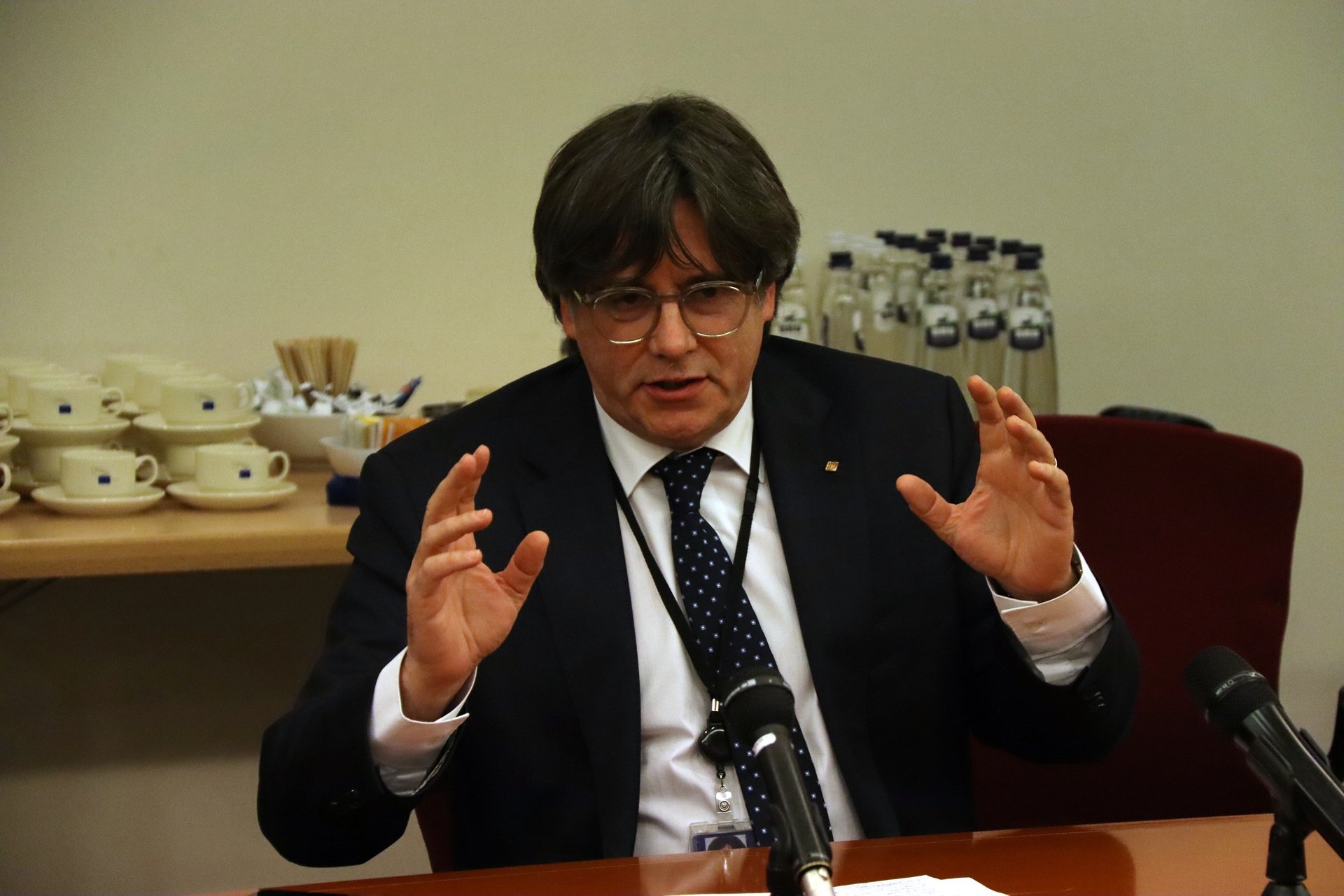The Catalan president-in-exile, Carles Puigdemont, has this Tuesday strongly criticised the Clarity Agreement presented by the current president of the Generalitat, Pere Aragonès, affirming that "it does not have the necessary consensus". "The partisan path is being imposed," he says, and it "has no consensus, not even among pro-independence supporters", said Puigdemont on social media. Along these lines, he recalled that the proposal had already "been rejected by Parliament" and, moreover, all the referendum initiatives agreed with Spain had also "been rejected every time they were proposed". "Not even having the power to decide the prime minister of the Spanish government, was there any possibility of an agreement," he added, with reference to how Aragonès's party, ERC, provided the votes to invest the Spanish government of Pedro Sánchez, in return for a dialogue table which has proved fruitless in terms of the independence movement's goals.
Likewise, Puigdemont pointed out that, on the other hand, "the [2017 Catalan] referendum law and the declaration of independence" did have majority support, when "they were passed by an absolute majority" in the Catalan house. "But what has been rejected continues to be promoted and what has been approved continues to be ignored; all proposals to explore how we continue the path we decided to undertake in a legal and legitimate way continue to be ignored," he denounced.
La proposta d’acord de claredat va ser rebutjada pel Parlament. És indiscutible que no té el consens necessari.
— krls.eth / Carles Puigdemont (@KRLS) April 11, 2023
Les propostes de referèndum acordat amb Espanya han estat rebutjades cada vegada que s’han plantejat. Ni disposant del poder per investir president de Govern espanyol…
Puigdemont denounces the electoralism of the proposal
The president-in-exile pointed out that "those who have accepted the framework of constitutional independence do not have sufficient legitimacy to undo the collective path and drag all the others onto their drifting course". In this regard, he speculated about the possible electoralism of the proposal for the Clarity Agreement: "It may bring personal and party benefits, but none for Catalonia and the Catalans." Puigdemont asserted, as the Junts party has done, that "there are many questions that have not yet been answered", and denounced that "all this opacity does not make the clarity they promise credible, coincidentally arriving six weeks before the elections".
"For the sake of clarity, the first thing that should be requested before starting any work would be to know the content of the conversations and agreements that have taken place between the Spanish and Catalan governments", he insisted, while stressing that the precedents for such agreements are not "at all optimistic". "We have the right to ask ourselves if we want a clear agreement to re-invest Pedro Sánchez and fuel a new farce of the dialogue table. Because the precedents do not make us at all optimistic," he argued.
Despite his strong words against the Clarity Agreement, the president in exile asserted that if someone has a proposal that could be "useful" they need to present it "to the rest of the actors" to convince them "of the benefits". "Call it investing Pedro Sánchez, call it a Clarity Agreement," he said. According to Puigdemont, this is the way to achieve "consensus". "They have every right and legitimacy to try it alone, but not by taking away the strength of the other [pro-independence] actors. Not this, in any way. And for now, they don't have that strength and they can't have it", he insisted, referring to the ERC proposal.

